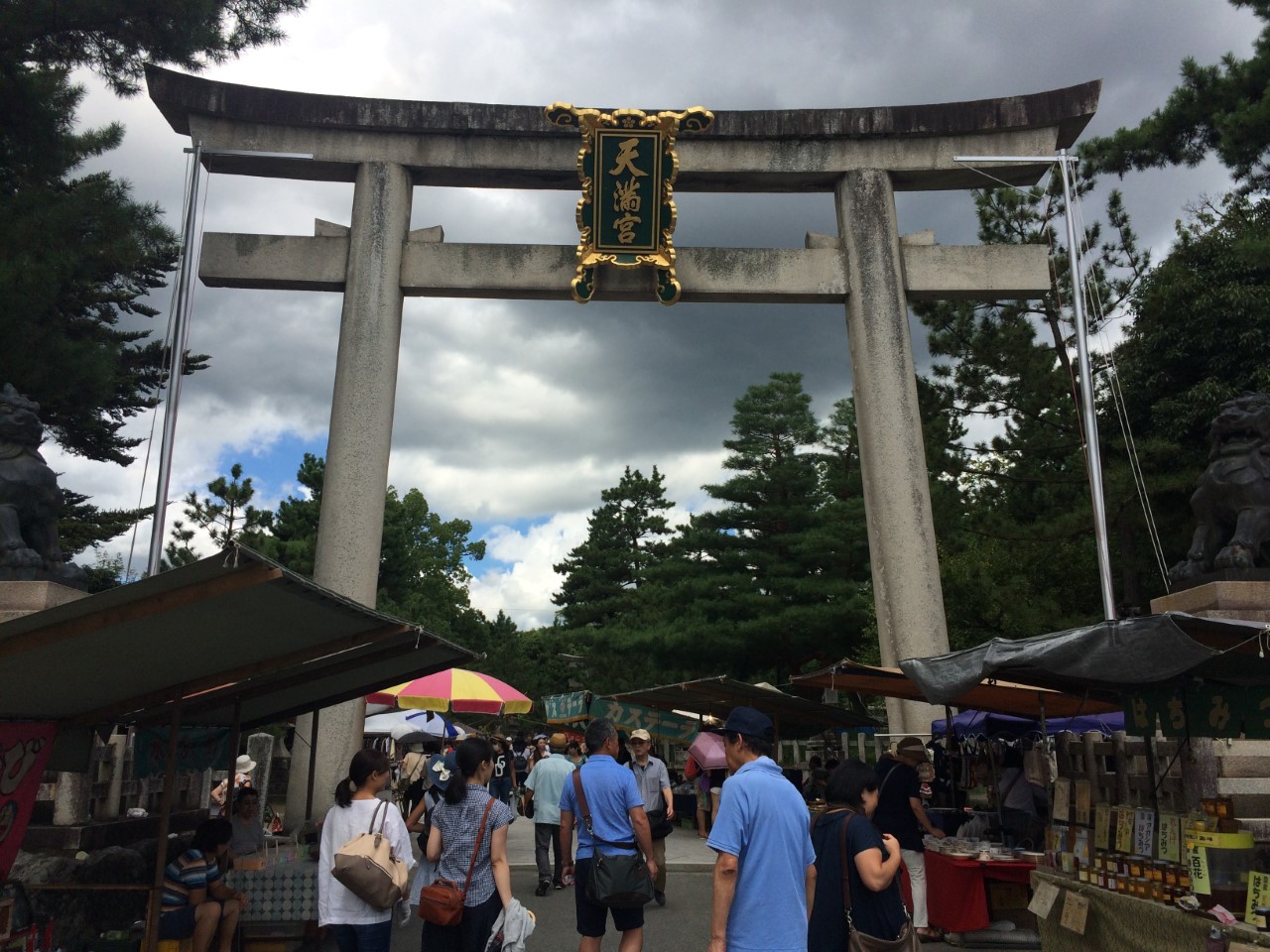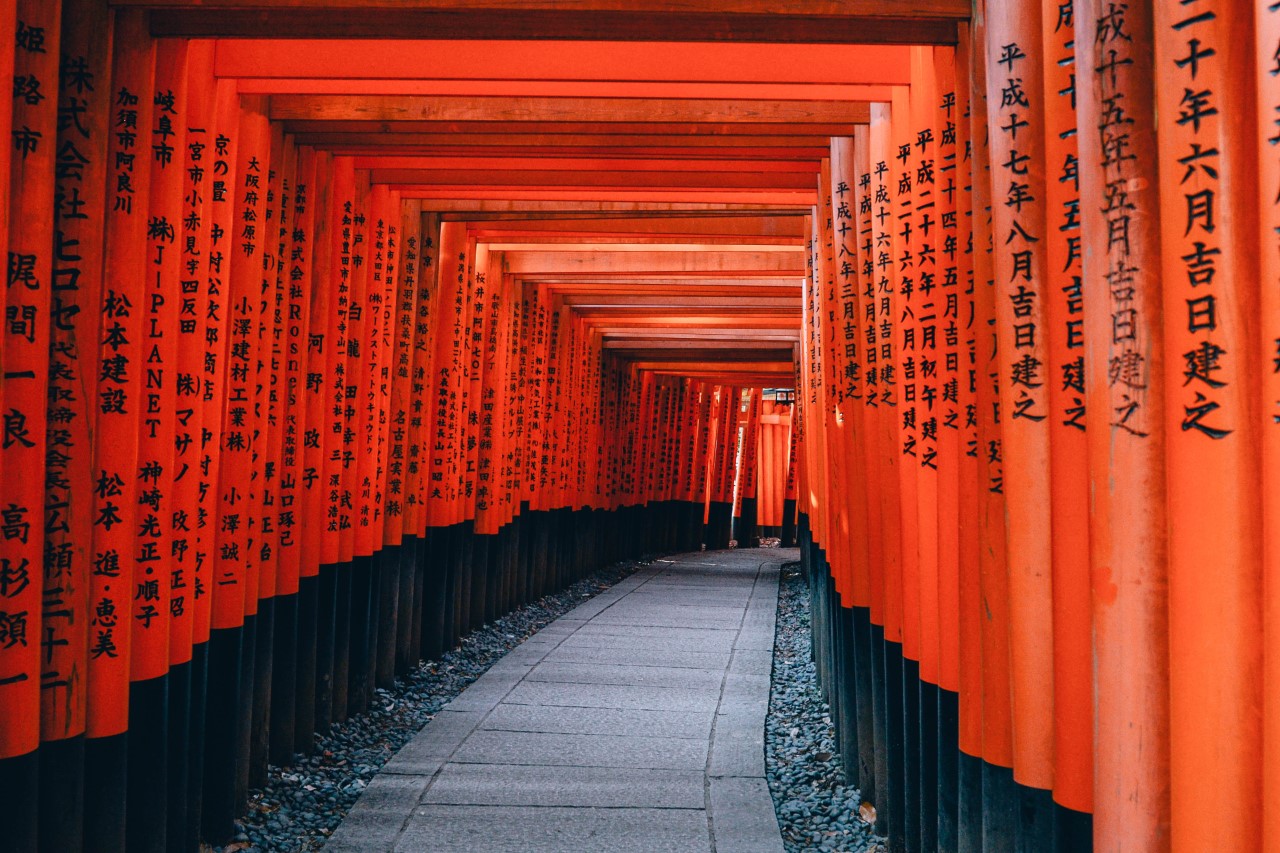Japanese

This is the “Asian Century” and East Asia is one of the most important cultural, political, scientific, technological, and economic areas of the world. This contemporary importance is matched only by the fact that East Asia is home to many of the world’s most continuously generative and influential cultures--Japan among them. Studying Japan and the Japanese language gives you the opportunity to engage with one of the most vibrant linguistic and cultural traditions in the world, deepening your understanding of the human experience and the specific Japanese expression of that experience.
The Japanese Program within the Department of Modern Languages and Cultures boasts a wide range of Japanese culture courses taught by leading experts in Japanese literature, culture, religion, media, and film. In addition, the Japanese program offers a comprehensive language program that meets the needs of learners at any level of proficiency from beginner to advanced. Whether in the form of a cluster, minor, major or double major, through a pairing of culture and language, the Japanese Program provides unique opportunities to powerfully engage the Asian Century no matter what your field of expertise.
For details see:
- Japanese major requirements
- Japanese minor requirements
- Japanese clusters
- Study abroad
- Language placement
- David Sands Holloway Memorial Award
- Contact information
Japanese Major Requirements

The Japanese major offers students the opportunity to develop a comprehensive understanding of Japan through a combination of culture and language coursework. The Japanese major requires a total of ten courses (of at least 6.0 and/or 4.0 credits) beyond JPNS 101-102, including two Foundation Courses, four Core Language Courses, and four additional electives (language or culture).
FOUNDATION COURSES (Fulfills upper-level writing requirement)
- CLTR 200: Topics in Critical Thinking
- CLTR 389: MLC Research Seminar
CORE COURSES
Four consecutive courses in Japanese language from the following list: JPNS 151, 152, 201, 202, 205 and 206.
ELECTIVE COURSES
A minimum of four additional courses in Japanese language or culture, two of which must be 4.0 credit upper-level (200 level) JPNS courses in Japanese culture. One pair of two-credit courses (e.g., Conversational Japanese, Calligraphy, etc.) may be substituted for one culture course requirement for the major. Two credit courses include JPNS 114, 115, 203, 204, 235.
Education Abroad
Up to two courses (language and/or culture) per semester of education abroad in Japan can be applied toward a major in Japanese. Education abroad courses must be pre-approved in consultation with an advisor from the Japanese Program (see Contact Information).
Transfer Credits
Credit for up to two courses (language or culture) from another institution can be applied toward the Japanese major. In the case of language coursework, students must demonstrate a corresponding level of proficiency on the MLC Japanese Program placement test to receive transfer credit for the Japanese major. Transfer students should check with the Center for Advising Services (CAS) to inquire whether other courses completed at previous institutions that cannot be counted toward the Japanese major can be transferred for general degree credit instead.
Declaring a Japanese Major
Students interested in declaring a major in Japanese are encouraged to meet with an undergraduate advisor (See Contact Information) from the program to outline a plan for the timely completion of the major.
Japanese Minor Requirements

A Japanese minor is the perfect way to round out your educational program and give you a competitive edge in today’s job market. This minor gives you language and cultural experience that will deepen your insights, enhance your intellectual versatility, and set you apart. The Japanese minor consists of a total of five courses (of at least 6.0 and/or 4.0 credits) in Japanese language and culture to be selected in consultation with your undergraduate advisor. One pair of two-credit courses (e.g., Conversational Japanese, Calligraphy, etc.) may be substituted for one 4-credit course requirement for the minor. Two-credit courses include JPNS 114, 115, 203, 204, 235.
Education Abroad
Up to one course (language and/or culture) per semester of education abroad in Japan can be applied toward a minor in Japanese. Education abroad courses must be pre-approved in consultation with an advisor from the Japanese Program (See Contact Information).
Transfer Credits
Credit for up to one course (language or culture) from another institution can be applied toward the Japanese minor. In the case of language coursework, students must demonstrate a corresponding level of proficiency on the MLC Japanese Program placement test to receive transfer credit for the Japanese minor. Transfer students should check with the Center for Advising Services (CAS) to inquire whether other courses completed at previous institutions that cannot be counted toward the Japanese minor can be transferred for general degree credit instead.
Top ↑
Japanese Clusters

The department offers six Japanese clusters, all in the humanities academic division.
Japanese Language (H1JPNS008)
Students may choose the appropriate level of Japanese language as a cluster. Any three consecutive courses in the language sequence below can be chosen.
Japanese Language and Culture (H1JPNS005)
This cluster introduces students to basic language skills (reading, writing, speaking, listening) as well as the cultural context for Japanese. One language course is supplemented by two related courses in English which will open up the study of this linguistic-cultural area by looking at the evolution of Japan's civilization, the dynamics of contemporary life, or in some other way add depth to the study of this area.
Japanese Popular Culture (H1JPNS010)
Explore the domestic and international dimensions of Japan's acclaimed manga, anime, film, art, literature, music, etc.
Studying Abroad in Japan

There is really no substitute for lived experience. The Japanese program encourages students to study abroad in Japan. Study abroad provides an unparalleled opportunity to consolidate language skills and cultural knowledge, acquire linguistic fluency, deepen your cultural literacy, and create educational and professional connections onsite in Japan.
The Japanese program currently offers a summer study abroad program specifically designed to meet the needs of University of Rochester students. Coursework is fully integrated into the Japanese program curriculum and seamlessly applied toward the Japanese major or minor. For details see Summer Program in Tokyo, Japan.
In addition to the Summer Program in Tokyo offered by the Japanese Program. The Center for Education Abroad has information on programs in major Japanese cities, including Tokyo and Nagoya. For more information on studying abroad in Japan, visit the Center for Education Abroad and schedule an appointment.
Language Placement Information
(1) JPNS 101
If you are taking JPNS 101, you do not have to take the placement test.
Special Note for First Year students:
If you see on UR Student that JPNS 101 is “closed”, meaning that the course has reached its capacity, contact the instructor by Email. There may still be some space left for first year students.
When you are signing up for JPNS 101, keep in mind the following:
- You need to sign up for both Main Lecture and Recitation. There are three different sections of Main Lectures that you can choose from, and each Main Lecture class is tied to particular Recitation classes as indicated below. You must choose a Recitation class that is tied to the Main Lecture class that you sign up for. You cannot choose a Recitation that belongs to a different Main Lecture class. See the table below.
- When you attempt to sign up for a Main Lecture of JPNS101 through UR Student, you may get a message saying, “You are not eligible to take this course.” All you have to do is to ask for “Instructor Override” through the same system.
| Main Lecture | Recitation: choose one of the two options |
| JPNS 101-1 | JPNS 101-2 or JPNS 101-3 |
| JPNS 101-4 | JPNS 101-5 or JPNS 101-6 |
| JPNS 101-7 | JPNS 101-8 or JPNS 101-9 |
(2) Other Japanese-Language Courses
If you are hoping to take a course higher than JPNS 101, you need to take the online placement test through Blackboard. For information on how to take the test, please read the Japanese Placement Test Information PDF.
NOTE: Transfer students can apply up to two courses from their previous institutions towards the MLC Japanese major or one course towards the MLC Japanese minor, provided they pass the MLC Japanese program placement test. Transfer students should check with the Center for Advising Services (CAS) to inquire whether other courses completed at previous institutions that cannot be counted toward Japanese major or minor can be transferred for general degree credit instead.
David Sands Holloway Memorial Award
Graduating seniors who major or minor in Japanese are eligible for the David Sands Holloway Award for Excellence in Japanese. This award is possible thanks to a generous endowment by Professor Holloway’s family in his memory and in recognition of his many contributions to the MLC Japanese program between 2015 and 2021. The award recognized outstanding work toward a Japanese major or minor, with a preference for but not limited to first-generation graduates.
Contact Information

Our undergraduate advisors handle questions regarding the program major and our language coordinator handles issues regarding language placement and language transfer credit. In addition, undergraduate advising duties are assigned based on the first character of a student’s last name (i.e., family name). Directing your inquiries to the correct member of the advising team will help ensure a quick and effective response.
Help us help you. When contacting the appropriate Japanese program undergraduate advisor, whether by email or during office hours, please include as much detailed information as possible. Providing your full name, academic year, the relevant course numbers and names, and your status within the program (e.g., Japanese major, minor, cluster, etc.), gives us the information we need to help you.
Undergraduate Adviser
Language Program Coordinator
Faculty
Joanne Bernardi, Professor of Japanese and Visual and Cultural Studies
- Director, Re-Envisioning Japan: Japan as Destination in 20th C. Visual and Material Culture
William H. Bridges IV, Arthur Satz Professor of the Humanities, Associate Professor of Japanese
- On leave fall 2026
Shizuka Hardy, Associate Professor of Instruction in Japanese
Keiko Nishioka, Adjunct Instructor in Japanese
Yuki Taguchi, Assistant Professor of Instruction in Japanese
Mariko Tamate, Professor of Instruction in Japanese
- Language Program Coordinator for Japanese
Lin Meng Walsh, Visiting Instructor of Japanese
- Undergraduate Advisor
